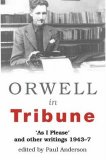Archive for July, 2009
Bloggers and transparency

Dr Ben Goldacre
One of the recurring themes of this blog is the way that weblogs are (as Charlie Beckett put it in that book review that I pointed to the other day), reconfiguring journalism and political discourse.
The most prominent examples of this in the UK have been the war of attrition that right-wing libertarian bloggers have conducted against politicians and the very idea that government should tax (“steal from”) people and spend (“burn”) their money. Read the rest of this entry »
Empowerment research – yes – actual research….

Professor Lawrence Pratchett
I went to an interesting seminar last week at the CLG (yes – unusual!) where Prof. Lawrence Pratchett and Dr Catherine Durose from De Montfort University talked about a recent systematic review they have carried out of a number of different empowerment tools. You can find the full report on the CLG site and its excellent to see someone looking at stuff that has already happened rather than running around trying to start something new the whole time. Read the rest of this entry »
Reconfiguring journalism and political discourse
Sometimes, a book review provokes a response that is worth reading even if you can’t afford the time / cash to read the book itself. Here’s an example from Charlie Becket’s verygood Polis blog reviewing ‘The Myth of Digital Democracy’ by Matthew Hindman:
“…the US obsession with the political blogosphere distracted people from the much richer opportunities online. US pol blogs thrives because the American mainstream political media is so boring and so editorially narrow, be it Fox News or the New York Times. Here in the UK we have much more vibrant newspaper-based political journalism as well as the vast edifice of the BBC and other public service broadcasters.
So it is not so surprising that our political blogosphere is less high profile than in America. The next UK election will NOT be an Internet election and very few contests or issues will be impacted by what happens online. But away from the overtly political websites the Internet is reconfiguring journalism and political discourse. Political journalism in the UK is already significantly networked. The blogs feed into the mainstream which itself is now widely connected online to the public. Social networks as well as specific interest websites are now framing the conversation alongside traditional media.”
Pravda Press
Having posted yesterday on the question of local council-produced newspapers, I’ve just seen a piece in London’s Evening Standard by Andrew Gilligan.
“In the past few years, a total of nine London boroughs have ditched low-key, factual publicity material and started high-frequency, in-your-face tabloids, full of good news – even if, as we shall see, it’s not always quite true.
Most are fortnightly but two are actually weekly. A Standard investigation has found that in London more writers are now employed by these official papers than by the local independent press.”
The questions that deserve asking around this issue are being asked elsewhere, but the fact that Andrew Gilligan is asking them illustrates what a potent political question this is. Gilligan’s political antenae are telling him all sorts of things, and his only omission is that he ducks the question that his own particular brand of partisan journalism foregrounds:
If local authority press officers aren’t the right people to offer an objective assessment of the performance of a local authority, why does he imagine that journalists such as himself are any more suited to the job?
In that article, as in so much of his writing, Gilligan is a partisan figure who feels able to brazenly advance the commercial and political aspirations of his editors and newspaper proprietors.
Roy Greenslade broadly agrees with Gilligan – and I suspect, if the argument came from elsewhere, we’d be able to play the ball rather than the man on this one. I don’t know about you, but I find that journalists are fairly unreliable witnesses on this one…
Transparency v Objectivity

Does the sceptical journalist solve the problems that we thought they did?
As local newspapers retreat from providing anything like a good quality of news coverage, local authorities are wondering what their response should be.
On the one hand, there’s the model that Birmingham City Council have taken – providing a much more user-friendly information gateway that is designed to provide resources to citizen-journalists and bloggers.
Other options include beefing up the council’s information department with a view to turning the fairly skimpy info circulars into fully-fledged newspapers or being more in tune with hyperlocal sites of the kind that Will Perrin is promoting at the moment.
It’s a question that raises a number of important philosophical questions about the role of the state and the bureaucracy in providing information about itself. Stripping bureaucracies of the monopoly position that they have in describing their own services is a potentially game-changing idea that could, in some ways, redefine the state as we know it.
But what about the idea of ‘public service journalism’? The Press Association have a slightly opportunistic proposal to position themselves as the hub for ‘public service journalism’ – as far as I can see, the BBC do it with an efficiency that other media players can only dream of. Read the rest of this entry »
Eric Blair on fanatics
 One of the unexpected joys that the blogosphere has brought is is the revival of writings that were originally presented on a serialised basis.
One of the unexpected joys that the blogosphere has brought is is the revival of writings that were originally presented on a serialised basis.
Samuel Pepys diary, for example. ‘Geoffrey Chaucer hath a blog’ is a nice variation – a contemporary set of sentiments put to the vulgar rhythms of late-middle English.
Flann O’Brien would be a good subject for a Pepys-ish treatment. His best work was short articles in The Irish Times. And of course, Orwell, whose letters and essays are at least as important as his literary high-points such as 1984 or Animal Farm.
Here’s the latest from Orwell’s facebook profile which has regular updates featuring the great man’s wisdom:
“I always disagree, however, when people end up saying that we can only combat Communism, Fascism or what not if we develop an equal fanaticism. It appears to me that one defeats the fanatic precisely by not being a fanatic oneself, but on the contrary by using one’s intelligence.” – George Orwell in a letter to Richard Rees (1949-03-03)
Detoxifying big decisions
 Last week, David Cameron offered a fairly populist ‘bonfire of the quangos’ proposal, with the implication that politicians would take back many of the toxic decisions that they had farmed out to overpaid bureaucrats.
Last week, David Cameron offered a fairly populist ‘bonfire of the quangos’ proposal, with the implication that politicians would take back many of the toxic decisions that they had farmed out to overpaid bureaucrats.
In the FT the other day, Philip Stephens questions the emphasis:
“…broadcasting policy accounts for only about 5 per cent of Ofcom’s workload. Moving it to Whitehall would scarcely mean “that Ofcom, as we know it, will cease to exist”. Some 90 per cent of Ofcom’s remit comprises unglamorous work such as telecommunications regulation, upholding broadcasting standards, allocating spectrum, and, crucially, policing competition. All this can properly be done only at arms length from civil servants and ministers.”
I’d agree with Stephens’ highly critical conclusions about the seriousness of the Conservatives here. All of that said, if MPs had to pick up that 5% that he mentions, it would be a minor triumph for common sense, the taxpayer and a for democracy as well.
Here are a few observations about OfCOM’s activities in the past year or so:
- Not content with having one place to farm out awkward questions, Lord Carter’s ‘Digital Britain‘ was launched in competition to OfCOM’s Public Service Broadcasting review
- In reply, OfCOM have strategically launched their local media review
- While this happened, DCMS have a new minister in the driving seat – one who shows no grasp of the policy questions or any disposition to ruin the end of his ministerial career with futile study
- … and anyway, whatever the DCMS decides, it will be overruled by the bafflingly named BERR
- Carter resigned before his report was published, undermining the whole shooting match
And where, exactly, does parliament fit in to any of this anyway?
These exercises were a complete waste of time. They have taken place in the context of impending General Election and the fin de siècle atmosphere in which all complex policy matters are discussed. Few of these conclusions are likely to result in legislation before the chess-table is turned on it’s head by an incoming government.
It’s a farce – and one that exists because Parliament doesn’t have the resources or the self-confidence to take these issues on in the first place.
We can assess the commitment to promoting ‘scrutiny’ at a local level from the main parties by looking at their attitude to these ‘political detoxifying chambers’ that QUANGOs partly provide. David Cameron could announce that he will ignore the outcome of both the Digital Britain review and any forays OfCOM is making outside of the more complex regulation of things like Radio Microphones – an issue that it would probably be unwise to hand back to Westminster.
Update: I’ve just seen this post over on Jim Godfrey’s blog:
The real solution in my view is not necessarily to weaken Ofcom by taking away PR functions and slashing salaries, but to strengthen the DCMS. Too much of their policy ‘thinking’ takes place elsewhere and they need a strengthened capacity – in concert with the Department for Business.
Who will cover the cost of ‘scrutiny’?
Anthony has beat me to a response to the new Green Paper today, so I thought I’d develop his scepticism about the appetite for ‘scrutiny’.
For me, the interesting question is – as ever – around the whole notion of representation.
Town Hall Matters has lighted on this question and that post returns to a theme that Jenni Russell picked up on a few weeks ago (covered here at the time, and subsequently as the subject for a session at Reboot Britain) albeit with a focus on local rather than Westminster politics.
THM asks:
“…is a desire to scrutinise really what motivates people to become councillors?”
The post then goes on to recount that John Denham wants to…
“…make council leaders ensure scrutiny is a core function and that it is adequately resourced.”
This raises a significant question – one where I suspect common sense would conflict with the current public mood. Read the rest of this entry »
Strengthening local democracy, kinda
I’ve just read through the new Strengthening Local Democracy Green Paper, and I can’t sum it up better than Talking Heads did in their 1977 hit, Psycho Killer. Not the refrain “better run, run, run, run away”, but the verse:
You start a conversation you can’t even finish.
You’re talking a lot, but you’re not saying anything.
When I have nothing to say, my lips are sealed.
Say something once, why say it again?
The first line is doubly apt – it’s optimistic (at best) to publish a consultation document ten months before a general election. It’s optimistic and unproductive when the document itself contains reams of prose on the benefits of democracy, without taking any of its thinking through to a logical conclusion.
The document treats strengthening local democracy as equivalent to strengthening local councils. That’s part of it, but a long way from being all of it. There is also, for starters, increasing the awareness of local political issues in the public, increasing turnout at local elections, making councillors more representative and more ambitious for their role, and promoting better debate and discussion at local and national level.
To be fair and balanced in my brutality, Conservative thinking on the issue is no better – as evidenced by the ragbag of populism and councillorism in their Control Shift paper. Both parties seem to be unable to think up sustainable and coherent initiatives to strengthen the political environment within which local councils work.
Back to the condoc. What little novelty it contains is around scrutiny. John Denham (or Hazel Blears, who knows?) obviously thinks scrutiny is just the thing to revive local democracy and make councils meaningful again. The Total Place initiative will tell councils how much public money is being spent by local bodies in their area, and scrutiny committees will have new powers to oversee local public services, including the utility companies, and scrutinise their budgets (p.18).
I suppose this might be good material for a green paper called “Strengthening local councils a bit” but it seems to be asking scrutiny committees to sprint before they can walk, whatever warm words there might be about duties to fund them sufficiently (p.21).
Let’s admit that good scrutiny can make a difference to local delivery, and refocus Whitehall-minded bureaucrats on the pressing local issues. It’s a promising area. But in how many authorities is good scrutiny being practised right now? How many councillors would rather be on scrutiny than in the administration? Not many, I bet, in answer to both questions. So why load scrutiny down with new powers and responsibilities, until it’s shown that it’s ready for them?
Another area where the green paper makes some new suggestions is around the entitlements (p.29) set out in an earlier, more wide-ranging document called Building Britain’s Future. The idea here is that the Government will legislate, as it has on climate change, to fix policy priorities in legislation, and then allow councils greater discretion in the ways they choose to provide the entitlements.
There’s a separate post to be written on how democratic it is to attempt to entrench your governing philosophy while staring a general election defeat in the face (“not very” is the two-word summary).
From a practical perspective, though, it doesn’t feel like this a great step forward for democracy at local level. As set out in the condoc, the Government decrees the entitlement, the citizen receives it, and the local council is forced to cash Whitehall’s blank cheque. I foresee enormous legal and political rows about the exact meaning of particular entitlements, and innumerable “postcode lottery” campaigns started by interest groups looking enviously across local government boundaries. A prostitute famously has power without responsibility – now councils get to have responsibility without power (as usual, some might say).
Chapter three of the condoc pitches a few ideas on how councils might respond to climate change. Some might want to do lots of different things, some might want to do one or two big things. Hey man, that’s cool, no pressure, says the condoc. Let us know how it goes, we might delegate you some powers. (p.37)
There’s a fair bit in the document (p.39 onwards), and in John Denham’s launch event speech, about sub-regional working through city regions and multi-area agreements. These have the potential – particularly if RDAs are abolished – to become important hubs for economic and social development, as well as conduits of Government funding. It’s important that they are set up right and governed sensibly. The condoc rightly proposes some ways of democratising the governance arrangements through greater openness and scrutiny.
Amazingly, in a throwaway remark half way down page 44, the condoc also suggests “creating new sub-regional local authorities with a much wider range of powers” and possibly direct elections. You would have thought that a proposal for a third tier of directly-elected local government might merit a bit more prominence than that.
The final chapter (p.46) proposes putting the relationship between central and local government on a more formal footing. What could be more formal than a long series of Local Government Acts, you might ask? Well, the idea is that the Government would create a set of achingly bland and obvious principles (examples in the condoc) that it could then say it was adhering to, and set up a joint Parliamentary Committee to check up on them. Pretty much pointless, I’d say.
Overall, then, the consultation is, unfortunately, a damp squib. Andy Sawford at LGIU has a rather more positive take on it, though I regret the abandonment of empowerment rhetoric which he celebrates. Elsewhere, Town Hall Matters considers the scrutiny issue in more detail.
To paste to your clipboard
Ross Ferguson’s blog with it’s bold new eye-catching design has a post with the sort of data that I suspect will form the basis of a good many plagarists’ powerpoint presentations over the coming months.
Here’s my standout stat:
“38% of professionals believe the internet makes them more productive (OxIS 2009)”
I don’t know how the rest of the options break down, but one of the big challenges for The Interactive Charter is to make the case that interactive tools aid productivity. For me, it’s almost an article of faith, though I would also say that there seems to currently be a daily increase in amount of time I spend waiting for my various applications, operating system, virus definitions, etc to upgrade.
As a freelancer, I have clients that insist that I run some Microsoft applications that will only run on an MS operating system.
I’m beginning to wonder if those clients are worth keeping….
(Only kidding guys…love you really….)
